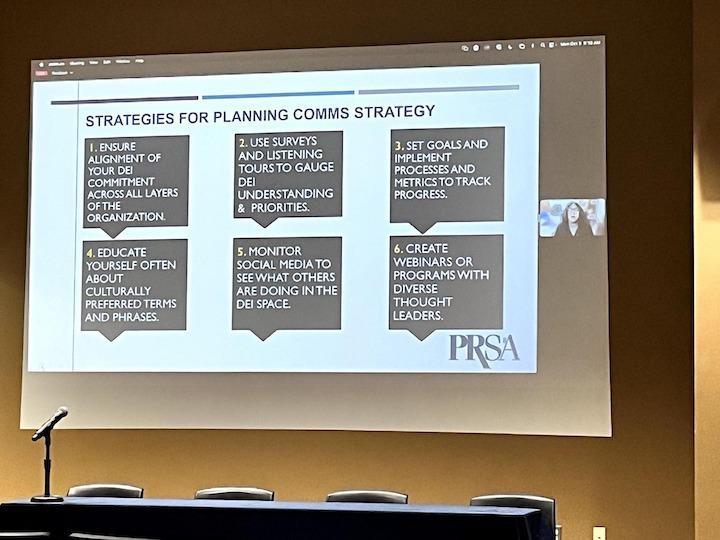
Higher Education
UCO hosts DEI indoctrination
October 4, 2022
Staff
Yesterday, the University of Central Oklahoma canceled some classes and directed those students to a conference featuring an advocate of “Critical Race Theory,” or CRT. The 9th Annual Fusion Conference was titled “Media Unmasked: The New Face of Communication.”
The keynote address was delivered by Dr. Felicia Blow, chairman of the Public Relations Society of America. Dr. Blow has written in support of CRT, defining it as follows:
The core tenets of CRT are that racism will never go away, and although it might appear that our society is improving its race relations, it will never stop privileging whites and will only support legislation and policies so long as they don’t threaten the whites.
The UCO presentation included a slide with six “Strategies for Planning a Comm[unications] Strategy,” which emphasized the CRT-related concept of “diversity, equity and inclusion,” or DEI. Rather than a level playing field where individuals are treated equally, DEI calls for “equity” of outcomes. The first two steps listed on the slide are:
“Ensure alignment of your DEI commitment across all layers of the organization.”
“Use surveys and listening tours to gauge DEI understanding & priorities.”
The fifth step calls for monitoring social media “to see what others are doing in the DEI space.” Dr. Blow also lectured students on using “inclusive language” and “culturally preferred terms and phrases.” It is unclear whether “culturally preferred” would include a term like “latinx,” which is popular with white elites but not with Hispanics.
Oklahoma law actually protects college students from racist indoctrination. HB1775, enacted in 2021, says that any “orientation or requirement that presents any form of race or sex stereotyping or a bias on the basis of race or sex shall be prohibited.” OCPA attorneys are conducting further research to determine whether UCO’s program violated state law.
[This story was updated to remove a reference to UCO journalism professor Joe Hight, who was not associated with the Fusion conference but with another communications conference held the next day.]
